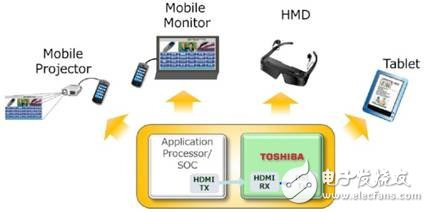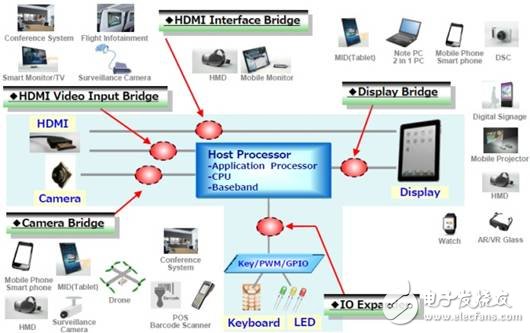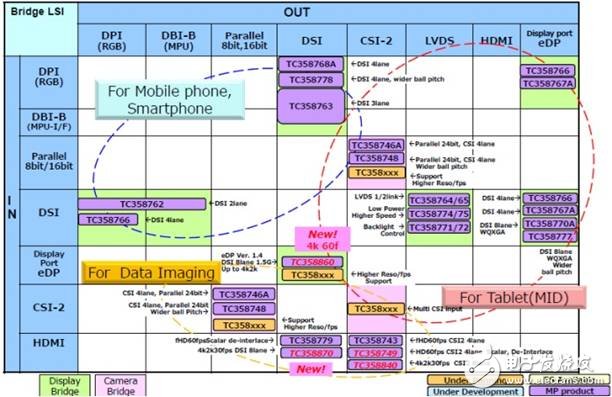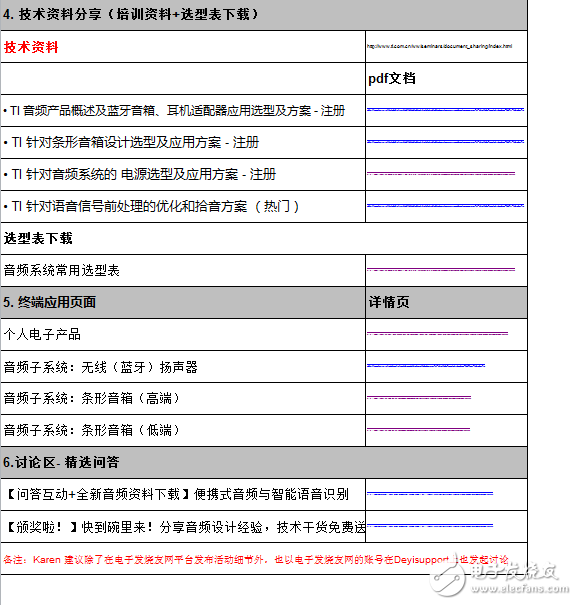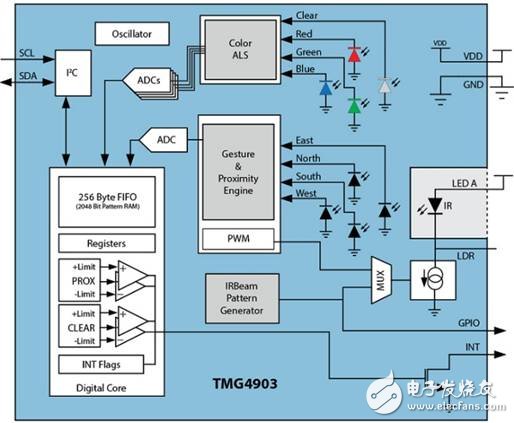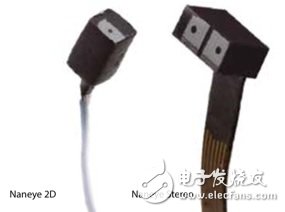Dalianda Holdings, a leading semiconductor component distributor dedicated to the Asia-Pacific market, announced that it has launched Toshiba and AMS solutions for virtual reality, such as various output (in) interfaces. Interface bridge chip, 3D gesture sensor and miniature image sensor module and so on. With the higher resolution and image quality of multimedia content, it is inevitable to receive or transmit a large amount of data at high speed on peripheral devices such as video cameras and liquid crystal displays, because only the main processing such as baseband and application processor can be satisfied. The job requirements of the device. Toshiba has introduced an interface bridge chip called "Mobile Peripheral Device (MPD)" that supports high-speed data transfer protocols such as MIPI, LVDS, Display Port and HDMI. Toshiba's MPD not only transmits data at high speed, but also bridges the main processor and peripherals of different interfaces. Toshiba also introduced a broad portfolio of peripherals such as I/O expansion devices and SC card controllers. Figure 1 - Toshiba-based VR interface bridging solution launched by Grand Alliance Figure 2 - Schematic diagram of Toshiba-based interface bridging solution launched by Grand Alliance Toshiba's bridge and buffer ICs support a variety of serial data transfer protocols such as MIPI®, MDDI, LVDS, Display Port and HDMI for easy electronics design; input/output expander ICs easily enhance existing system inputs / Output capabilities, including GPIO, keyboard, LED controller and timer. The expander has a wide range of applications, including mobile phones, digital cameras, printers, etc. In addition, Toshiba is also developing various peripheral peripheral auxiliary products, such as SD card host controllers that can transfer data to SD cards at high speed. Figure 3 - Toshiba-based "Mobile Peripheral Device (MPD)" interface bridge chip I/O interface combination Toshiba HDMI Interface Bridge Chip List Figure 4 - AMS TMx4903 gesture sensor system architecture diagram AMS introduces the industry's first sensor module with integrated universal remote control, barcode emulation, color sensing, proximity sensing and 3D gesture detection - the TMx4903, which is only 5.0x2.0x1.0mm. By integrating multiple optical sensing functions and an infrared LED, the TMx4903 module helps simplify the layout of smartphone boards, giving system designers greater flexibility. The TMG4903 offers the industry's most advanced non-contact infrared gesture sensing. AMS's new 3D gesture recognition technology enables the device to recognize more complex gestures, complementing AMS's first generation of gesture sensor TMG3992. The TMx4903's new 3D gesture and proximity sensing features automatic adjustment of infrared LED timing and output power, reducing noise and power consumption while optimizing sensitivity and dynamic range. The TMx4903 includes innovative circuit technology that protects against ambient light. Auto-calibration eliminates electronic noise and optical crosstalk. The integrated intelligent LED driver function eliminates the need to control the LED driver function through the application processor, greatly simplifying the implementation of the mobile phone software and reducing the processing power required for instantaneous gesture recognition. Figure 5 - Nanye 2D miniature image sensor launched by Grand Alliance The NanEye 2D sensor provides a true system-on-chip camera with fully self-timed readout sequencing, converted to 10-bit and bit serial data transfers via LVDS AD. NanEye's proprietary data interface technology allows cable lengths of up to 3 meters without any add-ons on the remote. Due to the low power consumption on the interface, no complicated shielding is required to meet the EMC specifications. NanEye sensor provides no-delay, smooth video operation - with 250 & TImes; 250 pixel shooting, frame rate of 44Fps allows synchronization to any type of display for safe operation and clear diagnosis. Fitness Smartwatch Fitness Smartwatch everyone enjoys luck , https://www.eeluck.com